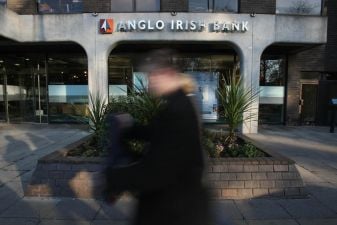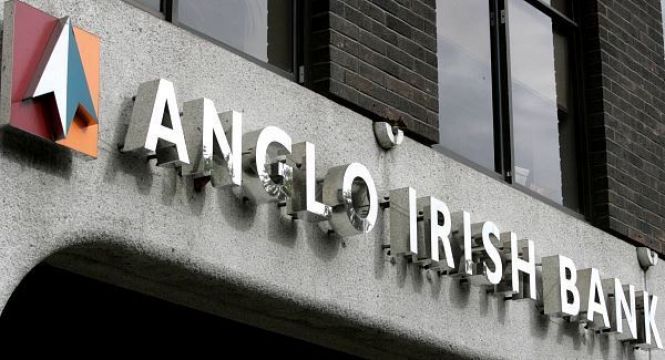Former Anglo Irish Bank head of lending Tom Browne walked away from that job at the end of 2007 with €9 million, including €3.7 million "goodbye" money, the Commercial Court has heard.
Mr Browne had engaged in an attempt to "rewrite history and write himself out of that history," the court also heard.
Mr Browne is being sued by Anglo's successor, the Irish Bank Resolution Corporation and the joint liquidators appointed to wind up IBRC, over default on borrowings he had with his former employer. They include more than €12 million owed on a major development in Bishopsgate, Victoria, London.
Counterclaim
He has counterclaimed the loans were void by reason of fraudulent misrepresentation through silence by Anglo about the involvement of businessman Seán Quinn and his Quinn Group in the ownership of the bank. IBRC denies the claims and disputes his claim he was not aware of the Quinn position when he was leaving Anglo in 2007.
Mr Justice Brian O'Moore is first hearing the counterclaim which will be followed next month by the main trial which is expected to last a total of six weeks. IBRC first brought the case in 2010 seeking judgment over default on his loans but the matter was adjourned a number of times to allow criminal trials involving a number of other former Anglo executives to be dealt with.
On Thursday, in reply to claims made during the opening of the counterclaim, Paul Gardiner SC, for IBRC and the liquidators, said what had been left out in that opening was the remuneration he received on his departure.
By his own admission, he accepted he received from Anglo borrowings of €13.5 million, sterling £14 million (€15.7 million) and $1 million (€800,000), which he had not repaid, counsel said.
Quinn Group
IBRC did not accept his fundamental premise that he was unaware of the Quinn group involvement and its investment arrangement which was by way of margin calls on Contracts for Difference (CfD) in relation to Anglo shares. The court heard at one point Quinn effectively had more than a 25 per cent holding in Anglo.
Mr Gardiner said the size of the Quinn CfD position was well known to Mr Browne in September 2007 - when he claims he effectively departed - because he was present at an Anglo board meeting on September 28 when it was discussed.
Counsel said Mr Browne, who first joined Anglo in 1990, rose through the ranks to become head of lending and in that role he oversaw a massive increase in lending. In 2005, it was up €6 billion and up €9 billion in 2006 for which he received bonuses of €1 million as a result of that lending.
The result of what he described as "hostile" negotiations on his departure in 2007 meant he left with an "extraordinary sum" of €9 million made up of stock options, a €3.7 million "goodbye handshake" and another bonus of €600,000 for that year, counsel said.
While he says he effectively left in September 2007, he signed the bank's accounts for that year ending in November because he was still a director, he said.
Stock options
IBRC also did not accept he negotiated his stock options in 2007 because by 2003 he had 1.6m share stock options along with 800,000 shares he owned, meaning he had 2.4 million shares which, given their rise in value, impacted on his wealth. The court heard Anglo put his network in 2007 at €60 million.

His borrowings for his property portfolio and shares were rolled up in 2007 on the basis of the loans he took out at that time with Anglo and for which repayment was sought. In 2008, he needed to borrow €1.5 million and Anglo again loaned him the money, counsel said.
He portrayed himself as a victim of deceit and deception but on the day he left Anglo he was "up €9 million".
The banking inquiry had established that the cause of Anglo's collapse was not the Quinn CfD position but its lending practices which "Mr Browne oversaw and benefitted handsomely from".
The case he put forward was "a significant attempt to rewrite history and write himself out of that history", he said.







